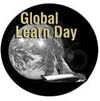
| JOHN HIBBS SESSIONS - some thoughts |  |
For a description of John's sessions, and text of keynote see http://www.bfranklin.edu/melbourne/
|
Firstly, a big thank to you Martin Lack and Associates for trying to accommodate all our needs. Thanks must also go to Aaron the tech support guy, and Chris from Monash. In terms of support and technical stuff working I thought the keynote session was successful. But most of my comments below are about the panel session, which I have to say was disappointing. In this session John attempted to demonstrate that a blend of old technologies and new can be a very effective delivery strategy in distance education. As those present are aware, there were a number of technical hitches, all of which could have been remedied had we had a practice run. In retrospect it is easy to say that this was absolutely imperative. But in a similar event at the WebCT conference in Adelaide last year things went much more smoothly because participants (remote and virtual) were able to iron out difficulties before the main event in a practice run. John and I expected to be able to do a practice run on the Sunday morning before the conference. I thought this had all been agreed to in our email discussions leading up to the conference, but when we turned up on Sunday the conference space was still being built. If we are to do this kind of thing again it is essential to have a practice run
Unless this is possible it is asking for trouble. I know it requires more advanced planning, but it goes a long way to guaranteeing the success of this type of event. I don't think the importance of this was appreciated, and having gone through this kind of event before I was actually quite stunned on that Sunday morning when I realised that a practice was impossible. What problems could have been addressed (and subsequently avoided) in a practice run?
Ideally, this session should have been a workshop with 20 - 30 participants. I actually thought that it was we agreed on, and was surprised to see that John's panel session was the only event scheduled in that timeslot. It was never intended for an audience of 100 plus. Although it was not discussed in the lead up to the conference, we know now that this panel session should have been in a computer suite where all participants had access to headphones and the accompanying text chat. Again, it's easy to be wise after the event. I am sure that many present at this panel session would have gone away disappointed, and had any suspicions that it is 'all too hard' confirmed. I heard that comment from one person. Maybe having virtual components at physical conferences is all too hard. It is not easy. But it does absolutely require the type of practice run outlined above, and if the bugs can be ironed out in practice, such events can have a major positive impact on physical conference delegates. I know because I've experienced it from both the physical and virtual perspective several times. John went to enormous efforts to prepare materials and line up a cast of eminent persons around the world, and I think the import of his message and the point of the media he was demonstrating was sadly lost on the physical audience. In that sense I feel we let him down, and we lost a golden opportunity to get the most of what John had to offer our conference. So, anyone want to
try and do it again better next time?? I'm game! Michael Coghlan |